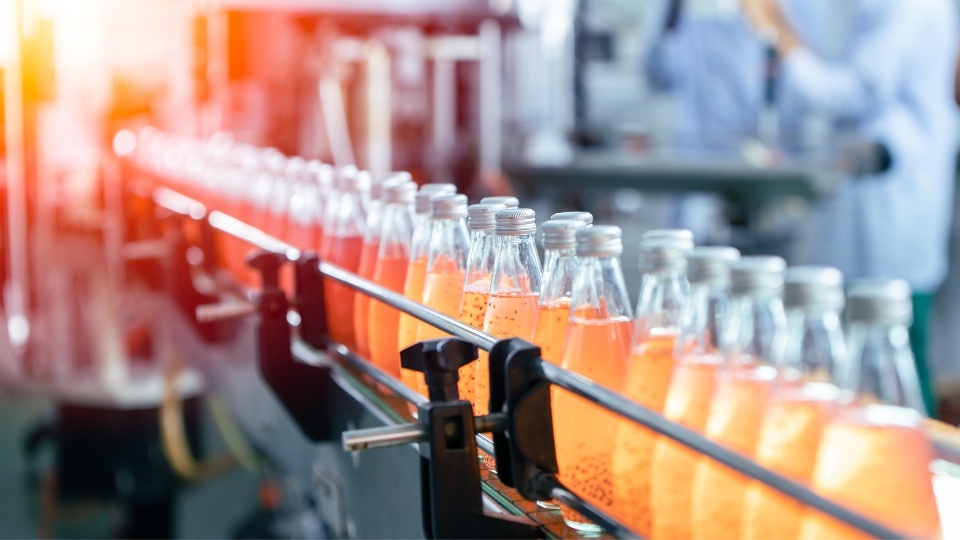
5 Things Food & Beverage Manufacturers Should Look for in their ERP.
Author: Lubin Hoque, Sales Director, Cooper Software
Having worked alongside customers such as Gordon & MacPhail and Rodda’s, we understand the unique challenges of the food and beverage industry. From balancing supply and demand, to streamlining the supply chain, and ensuring compliance with ever-changing regulations, we’ve tackled it.
Underpinning a successful, resilient manufacturing business, there must be a comprehensive and flexible technology solution designed to meet all challenges head-on. Choosing an enterprise resource planning (ERP) solution with industry-specific functionality helps food and beverage manufacturers to: -
- Enhance lot and batch traceability
- Manage recipes efficiently
- Optimise shelf life and positive release points
- Align processes quickly to new regulatory and legislation changes
- Facilitate intraday planning for fresh food producers
- Produce machine learning weather-based forecast models
- Integrate quality control supporting international standards like FDA
- Have forward and backward traceability with shelf life and expiration control.
Here are five things to look for in your ERP platform of choice...
1. A comprehensive, flexible and industry-specific solution
Look for something that supports all phases of the product lifecycle - from new product development, procurement, manufacture, quality compliance and delivery to customer. Ideally, everything is in one place so that users work with a single version of the truth. This means better balancing of supply and demand, streamlining the supply chain, complying with ever-changing regulations, and driving customer loyalty.
A range of manufacturing modes is also useful - make-to-stock, make-to-order, make-to-forecast, or a combination. Food and beverage companies might even have a mix of several modes of manufacturing, depending on customer or market demands.
2. Accurate forecasting and planning
Intraday planning supports fresh food and fast-moving manufacturers in reviewing and adjusting their plans when orders come in from a retailer that morning, for shipping later the same day. Accelerated responsiveness and agility help manufacturers drive bottom line growth and improve customer service, while keeping scheduled production disruption to a minimum.
Machine-learning models capable of including external influences like weather can help build more accurate forecasts. This improves the ability to replenish stock and maintain service levels for short lead-time items.
3. Integrated quality management
An end-to-end quality management approach - including compliance, audits, in-process controls, positive release and traceability help manufacturers control and proactively analyse processes for potential problem areas. Food and beverage producers can more easily trace quality issues to specific lots and batches, helping them to comply with food laws and regulations and avoid product recalls.
4. Process-specific key capabilities
True food and beverage specific key capabilities, such as recipe/formula functionality, lot/batch traceability, yields, by-products, shelf-life and expiration dates. ERP platforms should continuously invest in functionality that meets the critical business requirements of food and beverage companies, while ensuring success in the extended ecosystem. Our customer, world-famous Cornish clotted cream producer, Rodda’s has twice-yearly updates of its ERP software. Read their story here.
5. Operational intelligence
Out-of-the-box food and beverage specific lobbies, covering the end-to-end process, to help producers to implement best practice, and draw their attention to actions that require immediate attention. Food and beverage specific lobbies can guide users to the most relevant screens based on role and process flow, reducing training and inefficiencies.
Also look out for industry standard KPIs, by process, available as standard (rather than set up after a product has been installed). This can save weeks of set up time. It also means that users have access to actionable information from the outset.
Navigating the complex landscape of the food and beverage industry requires more than just experience and dedication; it demands a robust, tailored, technology solution. By choosing an ERP platform that offers comprehensive, industry-specific features, manufacturers can significantly enhance their operational efficiency and responsiveness. This, in turn, supports better decision-making, ensures compliance with evolving regulations, and drives customer satisfaction.
For further information, take a look at this whitepaper “Using ERP to build confidence in food & beverage products.”
Talk to us.
Start a chat, call on 01383 840 700 or complete the form, we will respond to all enquiries.




